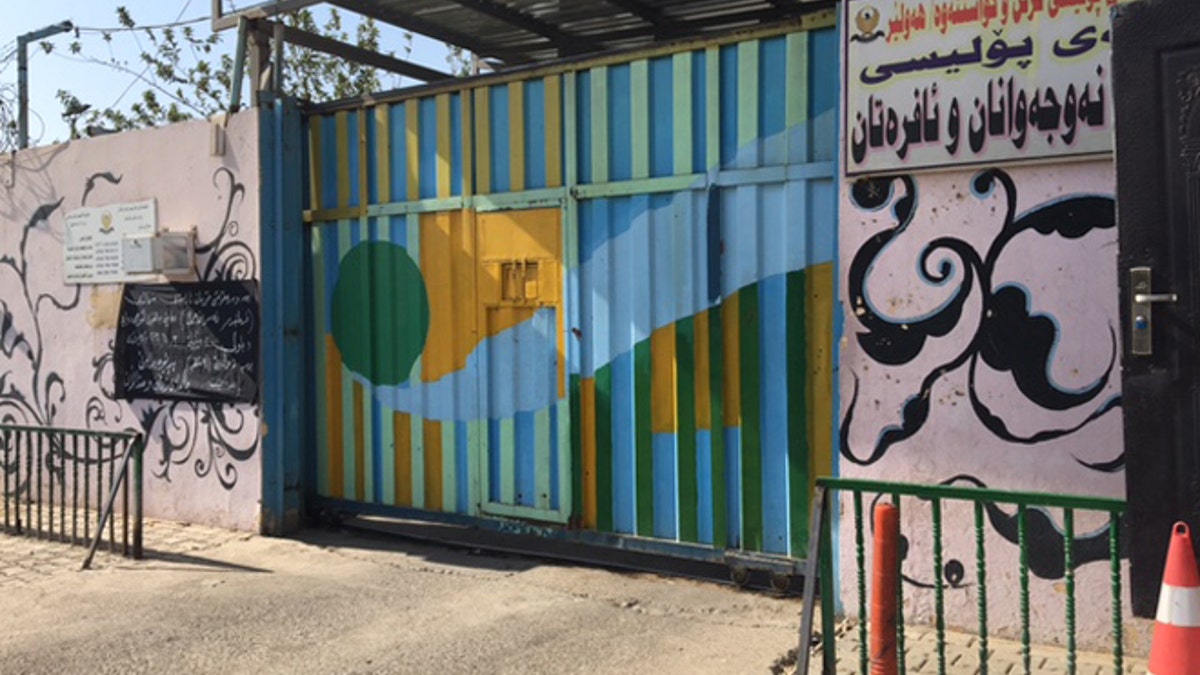
The main gate at the Women and Children's Prison of Erbil. (Photo: Hollie McKay/FoxNews.com)
ERBIL, Iraq – Behind the graffiti-speckled cement walls of the Women and Children's Prison here in the Kurdish capital of Erbil, an array of female ISIS jihadists languish along with scores of prostitutes, murderers and other criminals.
“Some have been tried, some are still waiting for their sentences," the facility's female manager, Diman Bayeez, tells FoxNews.com in her office. "They are here for various offenses … Because of ISIS, we have more and more terrorists."
The facility is designed to hold as many as 150 inmates, but it has more than double that – about 325 women and children. Of those, only a fraction are accused of terrorism.
"I got 15 years," a 54-year-old in a black hijab says. "For being an ISIS terrorist. I wanted to be a suicide bomber."
As directed by prison officials, she can only be referred to in print by the initials K.S.
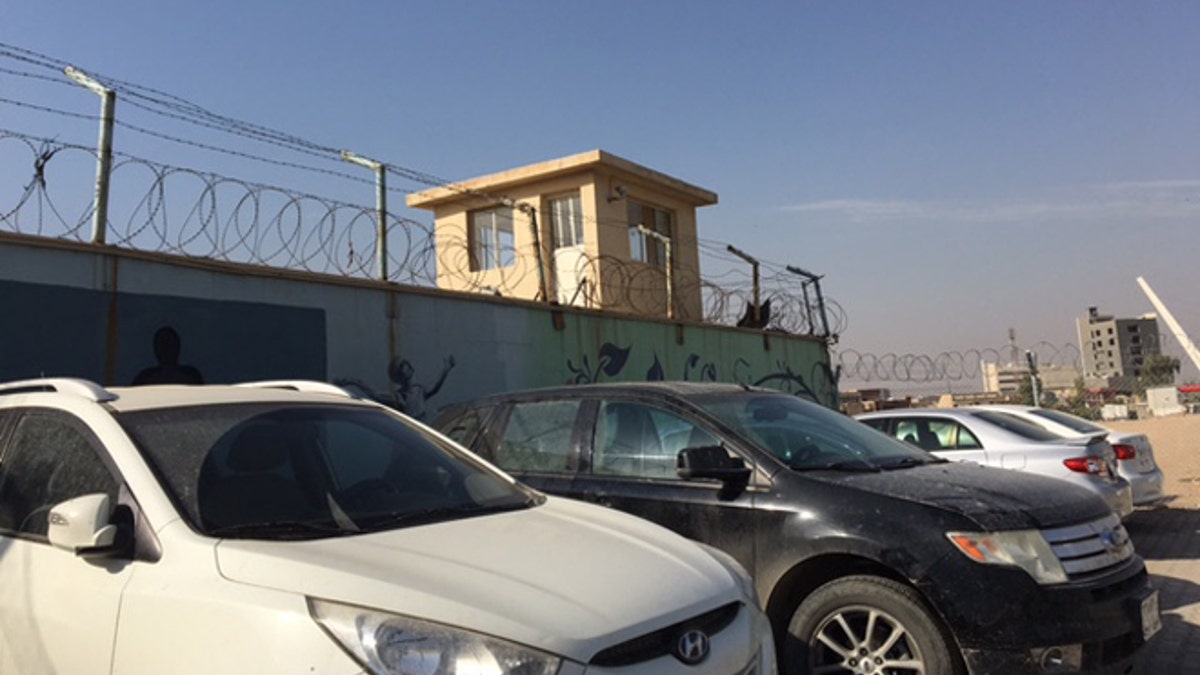
A watchtower at the Women and Children's Prison of Erbil. (Photo: Hollie McKay/FoxNews.com)
"I wanted a divorce,” she says. “I was very poor. I have schizophrenia and was just diagnosed with blood cancer, and my only daughter wasn't treating me well. I was borrowing money from people for the treatment."
That was in June 2014, and she described her situation to a cab driver named Mahmoud in her home city of Kirkuk.
"He was ISIS and said if I joined, they would treat me well and pay me," she says. "I said I would join on one condition: That they make me a suicide bomber and put me out of my misery."
Mahmoud was killed fighting in Hawija, and two ISIS members found her number in his phone. She – along with her now ex-husband – were recruited.
K.S. says she did not receive any formal training as a combatant, and did not pledge allegiance to ISIS, but admits that she allowed two militants to stay at her home – she now suspects that one was a spy for the Kurdish security forces.
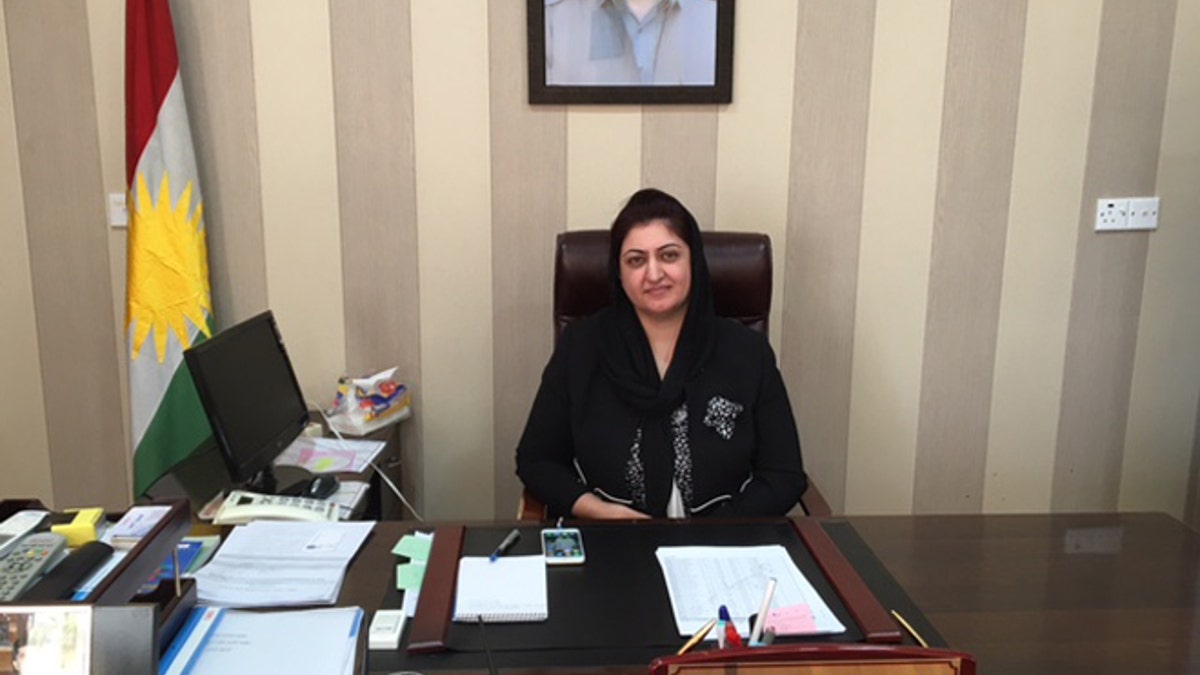
Diman Bayeez, the manager of the Women and Children's Prison of Erbil. (Photo: Hollie McKay/FoxNews.com)
But when she was scheduled to put on the suicide vest, she got cold feet. She fled with the idea of seeking asylum in Europe, but the Kurds picked her up before she could leave.
"I told them I did all these bad things I didn't do because I wanted to be executed. I still wanted to die," K.S. says, saying that she attempted to kill herself in jail, too, with a kitchen knife. "Now I am thankful to God. I know I have committed no crime."
Kurdish authorities beg to differ.
According to the deputy manager of the correctional center, Zhino Azad, K.S. was deeply entrenched in ISIS, coordinating for their agents and being a guard at their female prisons – possibly filled with captured Yazidi sex slaves.
"Even her daughter, a lawyer, is terrified of her," Azad tells FoxNews.com. "She is … a little psychotic. That's the type of people ISIS takes advantage of."
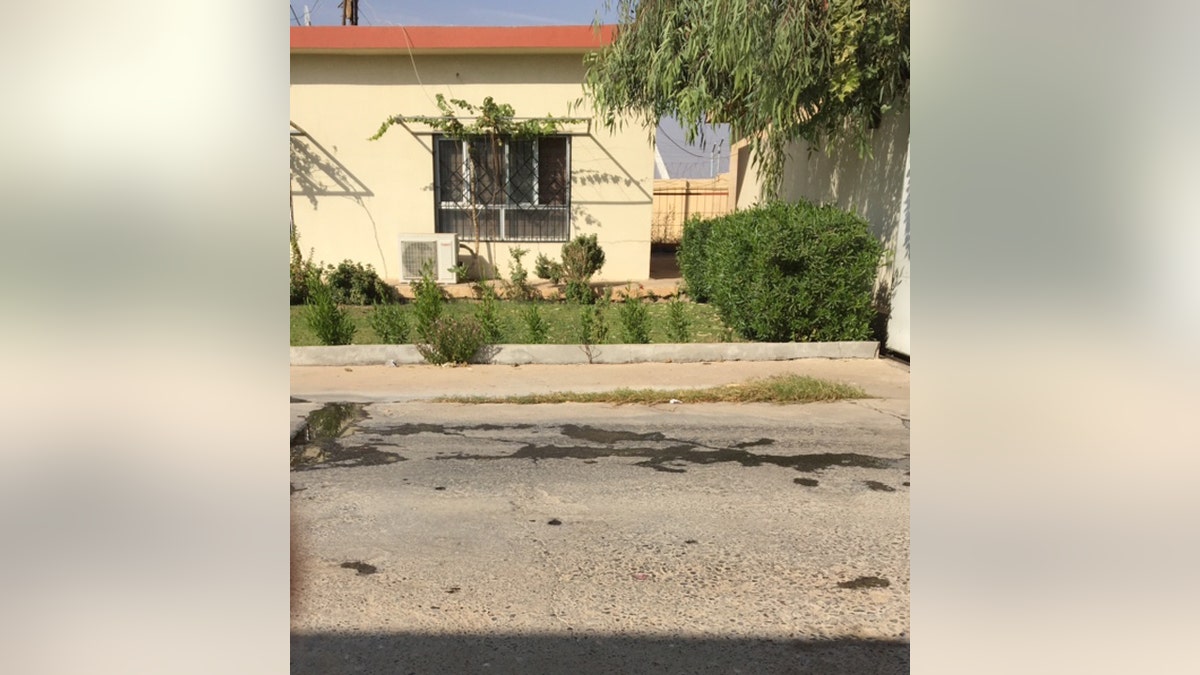
Photos are prohibited inside the prison complex. photo shows one of the buildings containing women's cells. (Photo: Hollie McKay/FoxNews.com)
K.S. doesn’t mind prison at all. "It is like heaven in this jail," she says.
Here, she is safe from ISIS, is fed and receives medical treatment.
"I get to read the Koran all day and sleep," K.S. says with a bright smile. "And I interpret dreams for the other women."
A.H., a 35-year-old mother with a small tribal tattoo on the tip of her nose, also spoke to FoxNews.com.
She was issued a life sentence, which was reduced to 20 years, then 15, because she has young children -- six of them who are between 5 and 16 years old. They are being looked after by the second of her husband's four wives.
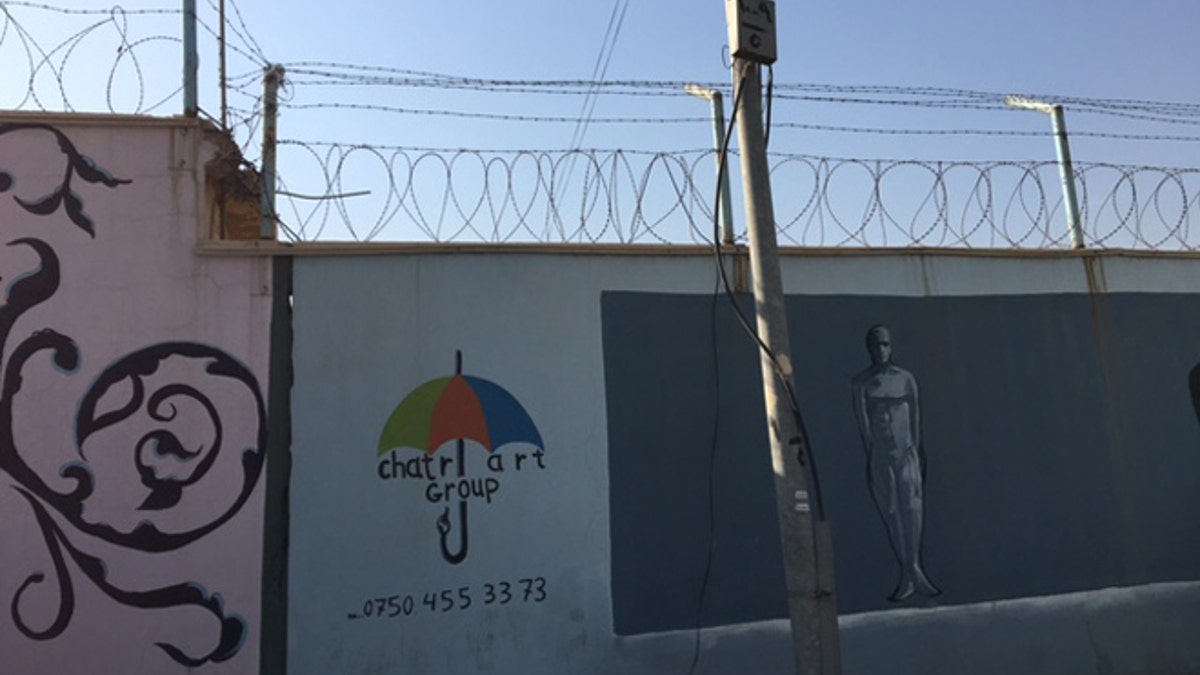
The graffiti-speckled cement exterior walls of the Women and Children's Prison of Erbil. (Photo: Hollie McKay/FoxNews.com)
He is in jail now too, she says.
At first, A.H. maintains that she was working at a civilian hospital that was controlled by ISIS, but that she never treated wounded fighters, but it doesn’t take long for her to let her guard down, especially after the prison official with us begins wandering in and out of the room.
"I went to ISIS myself and said I would do anything, clean hospitals, if they gave me a salary" – $260 a month, she says. "So I was setting up IVs and injections for the fighters."
While she admits to having sworn allegiance to the Caliphate, A.H. also claims she was a spy for Iraqi intelligence, and, fearful that ISIS members would find out, she fled to Kurdistan in early 2016.
We have problems, especially with the new [prisoners], radicalizing others, so we try to keep the terrorists separate.
She says all evidence of her spying was taken from her at an Iraqi Army checkpoint.
"Of course I regret [helping ISIS]. But my family was hungry. My husband was old," she pleads. "I feel betrayed. They took my phone, my proof I was helping them."
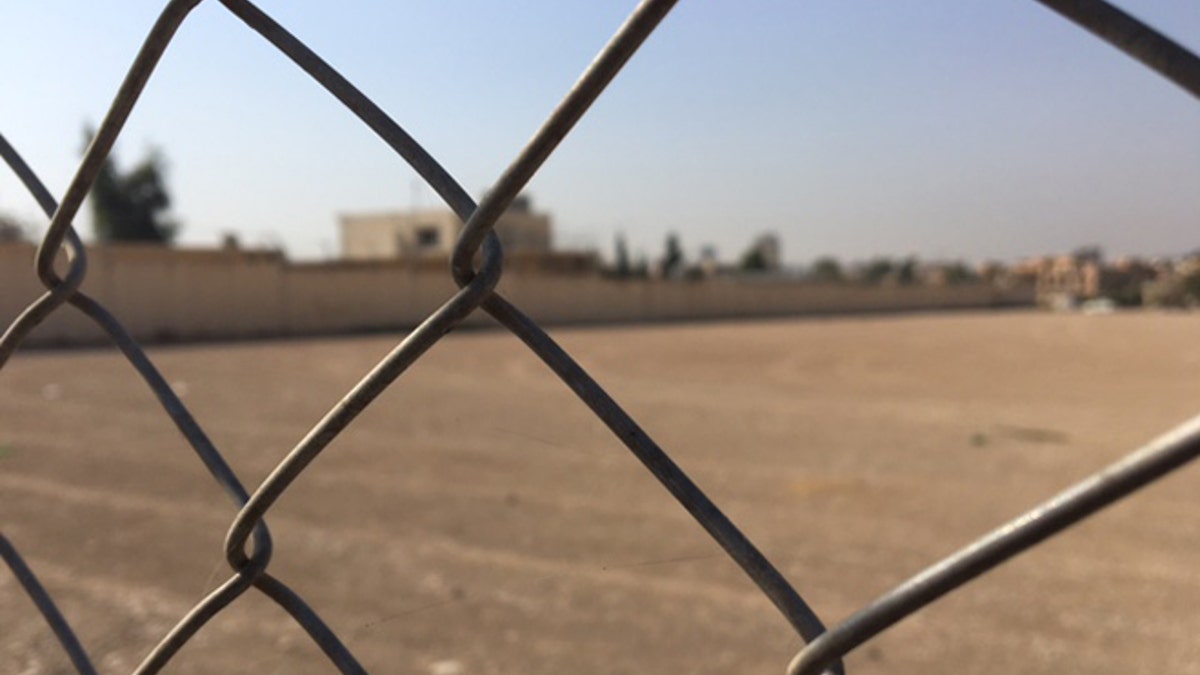
The exterior of the Women and Children's Prison of Erbil. (Photo: Hollie McKay/FoxNews.com)
"They all say they aren't guilty,” Bayeez tells FoxNews.com about the woman she watches over, “but we know otherwise. We have to try to bring them back into the community."
The prison is starting a deradicalization program that includes social activities. School, while optional, is encouraged and is held five days a week.
"We have problems, especially with the new [prisoners], radicalizing others, so we try to keep the terrorists separate," Bayeez acknowledges.
"It is rewarding to help those who are in deep trouble, to be part of a process that brings them back to normal life," she says. "But the downside [is] everyone has a problem – and some cases just cannot be fixed."




















